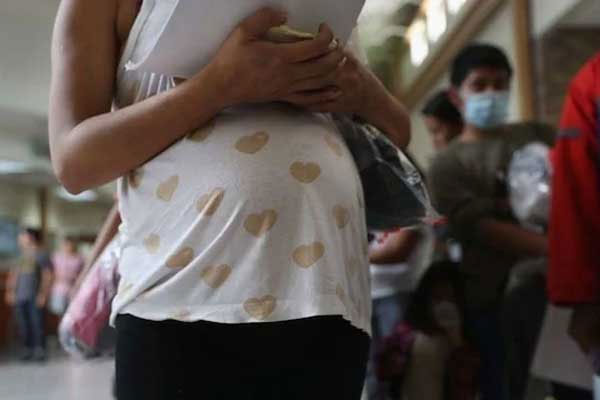Daijiworld Media Network – Bengaluru
Bengaluru, Aug 1: The number of child pregnancies in Karnataka has witnessed an alarming surge, with shocking data revealed by the state health department based on a survey conducted between April 2024 and May 2025. Thousands of girls, many of school-going age, have been reported pregnant — including those as young as 8, 9, and 10 years old.
According to the report, a total of 31,663 girls have become pregnant within the one-year period. Most disturbingly, this includes 33 girls between the ages of 9 and 12, indicating a serious social and healthcare crisis.

Representational image
The data from the government's Reproductive and Child Health (RCH) portal paints a deeply disturbing picture. As many as 16 girls aged 9, 7 girls aged 10, 4 girls aged 11, and 8 girls aged 12 were found to be pregnant during the 2024–2025 period. These cases involve children far too young to bear the physical and emotional responsibilities of motherhood.
The numbers rise sharply in the teenage group. A total of 5,037 girls aged between 13 and 17 were reported pregnant, while among 18-year-olds, the number is a staggering 26,393. Additionally, 198 pregnancies were recorded among 19-year-old girls. These figures highlight a troubling trend where thousands of girls, many still in school, are becoming mothers prematurely.
District-wise data for the same period reveals that Bengaluru Urban tops the list with 3,271 cases, followed closely by Belagavi with 3,158, Vijayapura with 2,278, Raichur with 2,012, and Mysuru with 1,623 cases. Other districts with significant numbers include Bagalkote (1,092), Ballari (1,077), Bidar (1,016), and Chitradurga (1,246). The data reflects the widespread nature of this crisis across both urban and rural Karnataka.
Experts have attributed the growing number of child pregnancies to child marriages, sexual abuse, lack of education, and socio-economic vulnerabilities. Some families, driven by poverty or social pressure, marry off their daughters at a very young age, especially in northern districts like Belagavi, Bagalkote, and Vijayapura.
Chairperson of the Karnataka State Commission for Protection of Child Rights (KSCPCR), Naganna Gowda, pointed out that the influence of social media, lack of sexual awareness, and educational gaps are major contributing factors. He also emphasized the role of exploitative relationships and sexual violence in many cases.
Pregnancy at such a young age poses severe health risks. These girls are more likely to suffer from malnutrition, anaemia, and pregnancy-related complications, endangering both mother and child. Furthermore, dropping out of school due to pregnancy affects their educational, social, and economic futures, while social stigma causes long-term psychological trauma.
To combat this issue, the Karnataka government has taken several steps, including strict enforcement of the Prohibition of Child Marriage Act, 2006, and tracking pregnancy data through the RCH portal. The Child Rights Commission is also collaborating with educational institutions, NGOs, and government departments to conduct awareness drives, particularly about sexual education and contraception.
The health department is working to provide medical services to pregnant minors, but challenges like lack of field staff in rural areas and low awareness levels hinder full implementation. Officials have acknowledged that political pressure in some regions also obstructs efforts to prevent child marriages.
To effectively address this growing crisis, experts stress the need for a multi-pronged approach. Firstly, there must be strict enforcement of the Child Marriage Prohibition Act to deter early and illegal marriages that often lead to child pregnancies. Simultaneously, health and education services must be expanded and strengthened in rural areas, where access remains limited.
Introducing mandatory sexual education in schools is crucial to ensure adolescents are informed about reproductive health and contraception. To support pregnant minors, the government should establish counselling centers that provide both mental health care and medical guidance. Lastly, awareness campaigns must be launched to tackle the misuse of social media, which has been identified as a contributing factor to early and unprotected relationships among teenagers.
These combined efforts are essential to safeguard the health, rights, and futures of young girls across Karnataka.